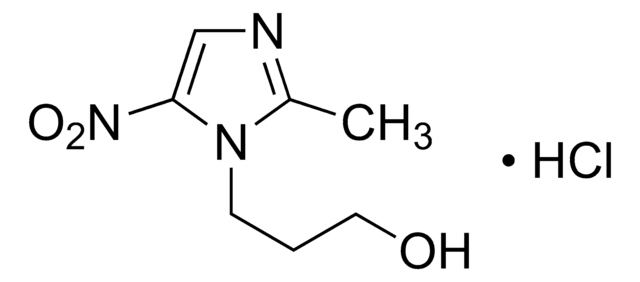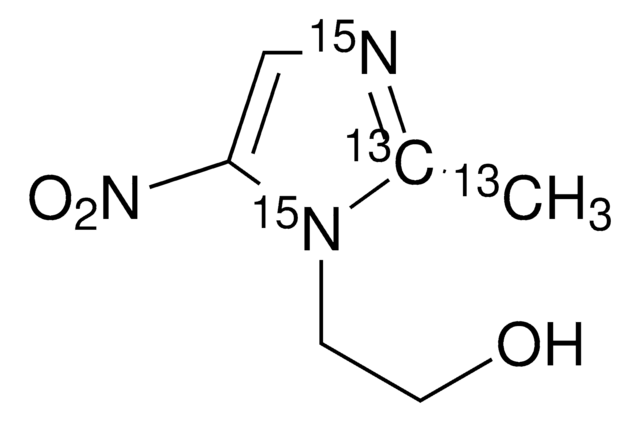34007
Metronidazole-OH
VETRANAL®, analytical standard
Synonym(s):
1-(2-Hydroxyethyl)-2-hydroxymethyl-5-nitroimidazole, Hydroxymetronidazole, MNZOH
About This Item
Recommended Products
grade
analytical standard
Quality Level
product line
VETRANAL®
shelf life
limited shelf life, expiry date on the label
technique(s)
HPLC: suitable
gas chromatography (GC): suitable
application(s)
forensics and toxicology
pharmaceutical (small molecule)
format
neat
SMILES string
OCCn1c(CO)ncc1[N+]([O-])=O
InChI
1S/C6H9N3O4/c10-2-1-8-5(4-11)7-3-6(8)9(12)13/h3,10-11H,1-2,4H2
InChI key
AEHPOYAOLCAMIU-UHFFFAOYSA-N
General description
Application
Recommended products
Legal Information
Not finding the right product?
Try our Product Selector Tool.
Storage Class Code
11 - Combustible Solids
WGK
WGK 3
Personal Protective Equipment
Choose from one of the most recent versions:
Already Own This Product?
Find documentation for the products that you have recently purchased in the Document Library.
Customers Also Viewed
Our team of scientists has experience in all areas of research including Life Science, Material Science, Chemical Synthesis, Chromatography, Analytical and many others.
Contact Technical Service











